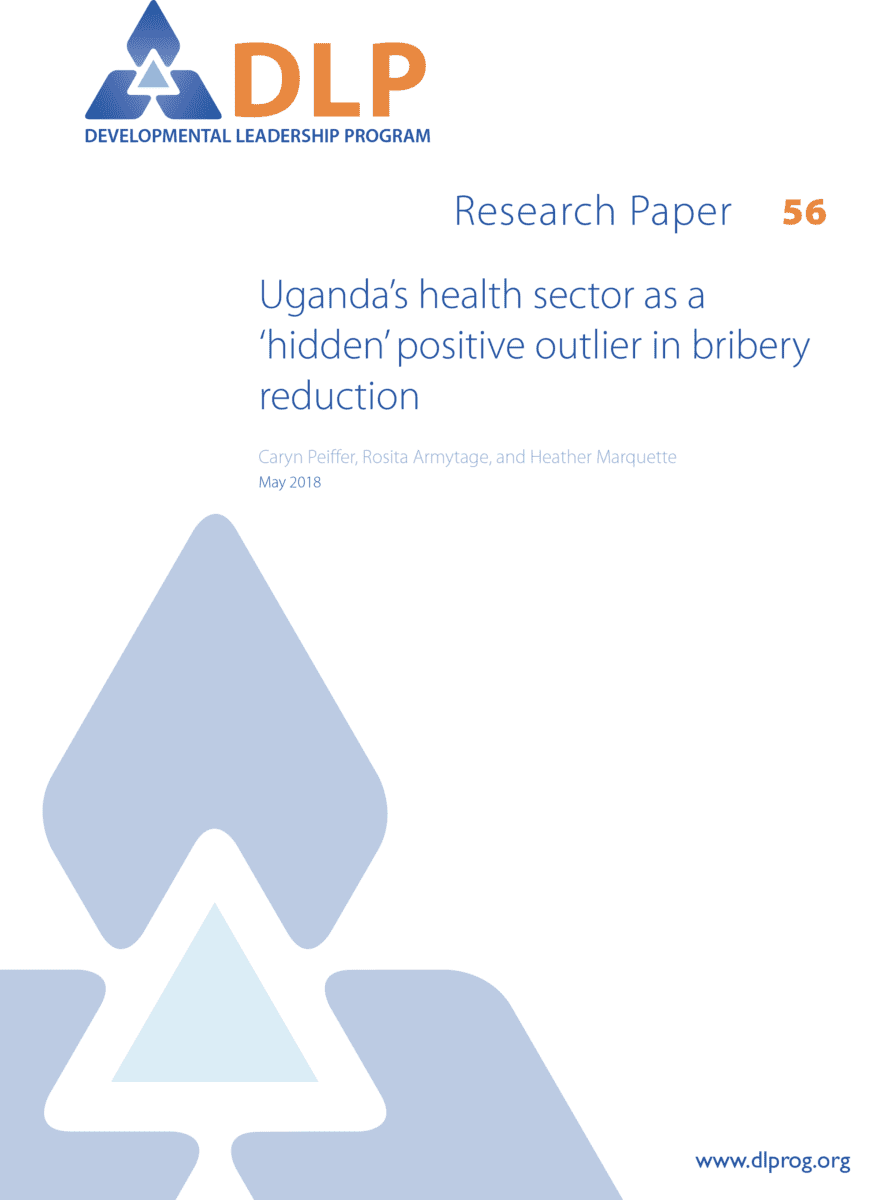This case study is part of a research project that used a novel mixed-methods approach to identify potentially unrecognised instances of development progress – specifically, of bribery reduction. Analysis of Transparency International’s Global Corruption Barometer flagged Uganda’s health sector as a potential ‘positive outlier’ because its bribery rate had halved between 2010 and 2015, which did not fit bribery patterns in other sectors of the country.
Qualitative fieldwork then examined whether and how bribery had been reduced in Uganda’s health sector. It highlights the work of a relatively newly established Health Monitoring Unit (HMU). The HMU’s corruption control strategy exemplifies a ‘principal-agent theory-inspired approach’. Principal-agent theory suggests that it is possible to control corruption when potentially corrupt actors (agents) are made to be fearful of their respective principals holding them to account for engaging in corruption. Principal-agent theory-inspired anticorruption efforts have attracted criticism recently for being largely ineffective. Nevertheless, this study finds that requests for bribes for health services had decreased as a likely consequence of the HMU’s efforts, especially its high-profile publicised raids, which made health workers more fearful of being caught.
However, apparent unintended consequences mean that this may not be a simple success story. Principal-agent theory anticorruption approaches that target frontline service workers may bring unintended consequences that outweigh the benefits of bribery reduction. There is evidence that the HMU’s activities may be harming morale among health workers and undermining citizens’ trust in the sector. Moreover, the HMU’s approach has not sought to address bribery’s function as a mechanism through which health workers supplement extraordinarily low wages. The HMU’s successes in reducing bribery may therefore be difficult to sustain.












